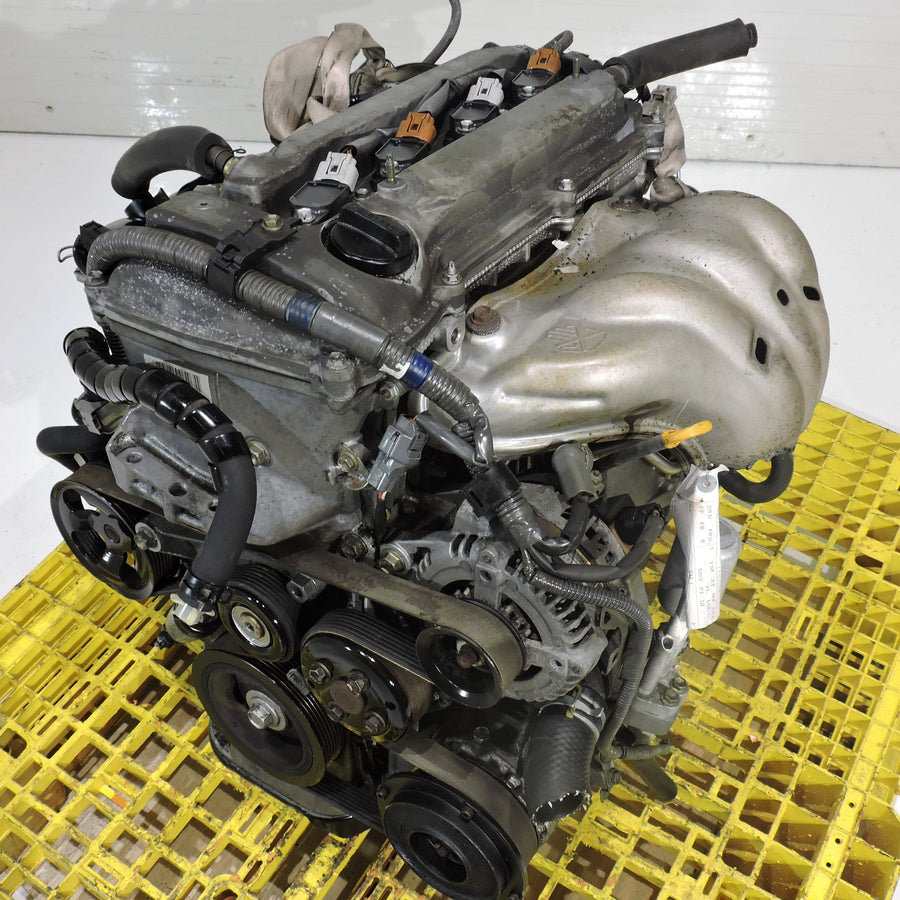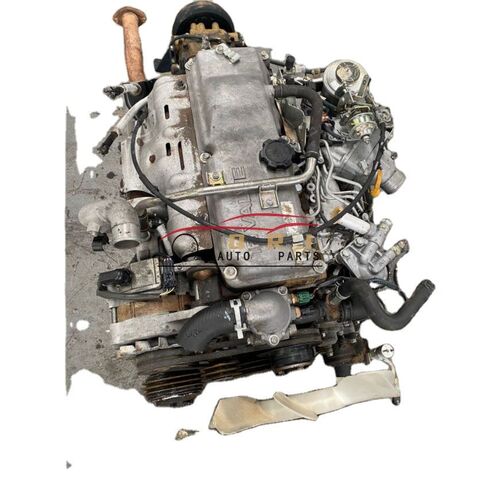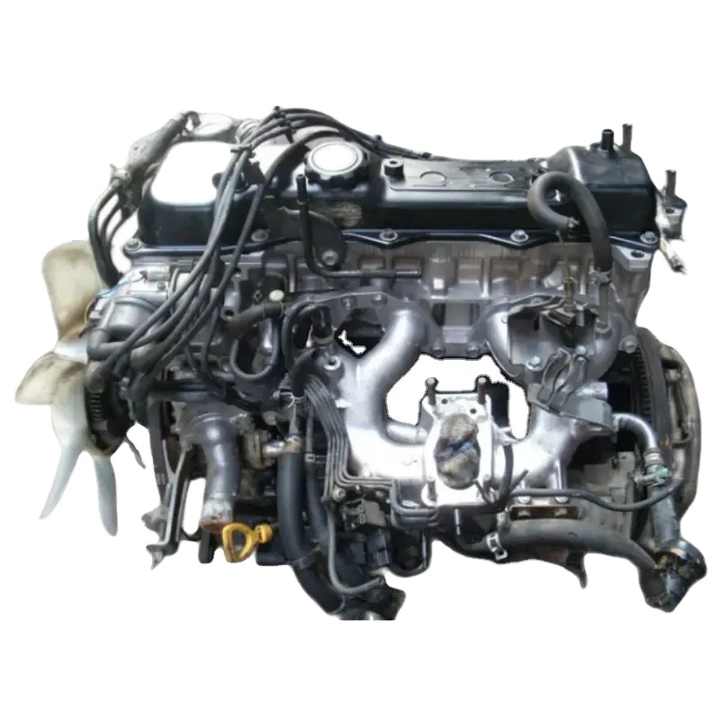Toyota RunX RSI: Specifications and Functions That Excite
Toyota RunX RSI: Specifications and Functions That Excite
Blog Article
Explore High Quality and Worth: Your Guide to Buying a Used Engine
When taking into consideration the acquisition of a used engine, understanding the detailed equilibrium between quality and value is extremely important. A thorough examination of engine history, reliability, and problem is important to ensure an audio financial investment. By conducting proper assessments and research, possible customers can browse the intricacies of the market better. Nevertheless, the nuances of guarantee options and rates strategies can dramatically influence the general decision-making process. As you consider these variables, one concern continues to be: what details aspects will ultimately direct your option in this important investment?
Understanding Engine Types
When taking into consideration the purchase of a second-hand engine, comprehension of the various engine kinds is necessary for making an educated decision. Engines can generally be categorized into 2 primary types: internal burning engines and electric engines. Inner burning engines, that include gas and diesel variations, count on the burning of gas to produce power. Gasoline engines are normally lighter and rev higher, making them suitable for efficiency vehicles, while diesel engines are renowned for their torque and gas effectiveness, usually preferred in sturdy applications.
On the various other hand, electric engines use power kept in batteries to power the lorry, using a cleaner alternative with less relocating components and minimized upkeep requirements. Within these categories, there are additionally differences, such as two-stroke versus four-stroke internal combustion engines, and various electrical motor configurations.
Comprehending these distinctions is important, as they impact efficiency, compatibility with existing lorry systems, and long-lasting operational costs. By familiarizing oneself with the numerous kinds of engines readily available, prospective purchasers can much better analyze their requirements and make options that straighten with their car's requirements and their personal choices.

Assessing Engine Problem
A complete evaluation of engine condition is critical for any individual taking into consideration the acquisition of a second-hand engine. Start with a visual assessment; check for indications of oil leaks, deterioration, or any physical damages to the engine block. A clean engine is typically a measure of excellent maintenance methods, while extreme gunk might suggest neglect.
Next, evaluate the engine's components, including the timing belt, gaskets, and seals. Look for wear and tear, as these components can be costly to change. Additionally, analyze the engine mounts, as damaged mounts might cause resonances and more mechanical problems.
A compression test is necessary to gauge internal engine health and wellness. Consistent compression throughout all cylinders indicates a properly maintained engine, whereas considerable disparities might direct to interior damages or wear.
Listening to the engine during a startup can give important understandings; any type of unusual sounds, such as knocking or rattling, may recommend much deeper concerns. If possible, demand a test run to evaluate performance under tons. By meticulously evaluating these elements, potential purchasers can make informed decisions and secure a quality pre-owned engine.
Checking Engine Background
Recognizing the engine's background is critical for making a well-informed acquisition. Understanding of previous usage, upkeep documents, and any type of past problems can considerably influence the engine's reliability and longevity. Begin by requesting the lorry recognition number (VIN) or engine serial number, which enables you to trace the engine's history.
Use readily available sources, such as Carfax or AutoCheck, to obtain a car background record. This record will supply important insights, including accident background, service documents, and previous possession details. Toyota RunX RSI. Pay specific interest to any signs of extreme damages or repeated repair services, which might show underlying issues
Inquire concerning upkeep regimens performed on the engine. Normal oil modifications, timing belt replacements, and various other safety nets show liable possession. In addition, ask if the engine has undergone any adjustments, as non-standard changes can affect performance and compatibility with your car.
Finally, if feasible, look for confirmation from a trusted mechanic that can analyze the engine's condition based on its history (Toyota RunX RSI). This comprehensive examination will aid you ensure and stay clear of possible mistakes that your financial investment is audio and beneficial
Warranty and Return Plans
Purchasing a pre-owned engine typically includes differing service warranty and return plans that can substantially affect your decision. When taking into consideration a made use of engine, it is essential to extensively examine the service warranty choices supplied by the seller. Some vendors might supply limited service warranties that cover particular elements for a defined period, while others might supply more extensive insurance coverage. Comprehending the terms and problems connected to these service warranties is critical, as they can influence the long-term worth and reliability of your acquisition.

In addition, credible sellers usually supply documentation that details the warranty and return process, making sure openness. Constantly request this information prior to completing your purchase. A distinct warranty and return policy can offer peace of mind and secure your investment, making it an integral component of the decision-making procedure when buying a second-hand engine.
Finding the Ideal Deals
When looking for the very discover this best bargains on a pre-owned engine, it is critical to carry out thorough research and contrast rates from numerous sellers. Beginning by discovering on-line industries, vehicle forums, and neighborhood salvage backyards to collect a comprehensive understanding of the he said marketplace. Using price comparison tools can streamline this procedure, highlighting competitive prices across various systems.

Think about timing your acquisition purposefully. Seasonal fluctuations in demand can impact costs, with certain times of the year supplying much better bargains. Furthermore, be open to bargaining rates; many vendors may want to lower their asking rate, specifically if the engine has been listed for an extended period.
Conclusion
In recap, purchasing a second-hand engine demands a comprehensive analysis of high quality and value. Examining engine condition through assessments and tests, validating its background, and comprehending service warranty and return policies are vital actions. Furthermore, comparing prices across numerous vendors makes sure the finest economic choice. By sticking to these guidelines, customers can boost their opportunities of getting a reputable engine that satisfies their needs while avoiding potential pitfalls connected Learn More Here with pre-owned acquisitions.
When considering the purchase of a used engine, understanding of the different engine kinds is important for making a notified decision. Engines can typically be categorized into two primary kinds: internal combustion engines and electrical engines. Gas engines are commonly lighter and rev higher, making them suitable for performance cars, while diesel engines are renowned for their torque and fuel effectiveness, typically favored in durable applications.
A complete examination of engine problem is paramount for anyone taking into consideration the purchase of a used engine. Begin by requesting the lorry identification number (VIN) or engine serial number, which enables you to trace the engine's background.
Report this page